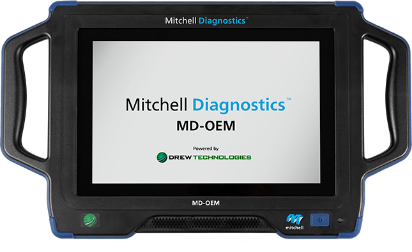
The Diagnostic Survey includes highly reliable screening instruments for more than 60 of the most common disorders, including. This diagnostic system is comprehensive, quick and easy, and will provide you with a wealth of interesting and vitally important information, much of which you would not otherwise be aware of. In most cases, you can complete the diagnostic interview in 5 to 10 minutes, and you can keep all the information in the patient’s chart for outstanding documentation. In addition, you will automatically document the severity of the symptoms as Mild, Moderate, or Severe, since all disorders are assessed with highly reliable, dimensional scales. Then you can quickly review the scores during a therapy session and tick off the pre-coded diagnoses on the Diagnostic Summary Sheet in one of three categories: Unlikely, Possible, or Probable. Patients can complete the Diagnostic Survey on their own at home between sessions or in the waiting room in 30 to 45 minutes. Over the past ten years, I have been developing, refining, and validating the EASY Diagnostic System. For example, patients with diagnoses such as Borderline, Narcissistic, or Paranoid Personality Disorder, may be clinically challenging or litigious, and many patients may have violent or suicidal urges you are not aware of, to say nothing of the predictable clinical problems associated with undiagnosed alcohol or drug abuse, or the patient’s hidden desires to maintain symptoms in order to obtain disability or win a lawsuit. In addition, structured interviews can be exceptionally frustrating due to the dichotomous nature, and the arbitrary cut-off points, for many of the diagnostic criteria.Īs a result, most therapists simply scribble some plausible diagnosis in the chart, such as “depression.” Sometimes you can get away with this, but you may set yourself up for legal or clinical problems down the road if you don’t do a comprehensive diagnostic assessment and document your findings in the chart. For example, one of the most widely used structured diagnostic interviews can take up to three or four hours, or more. But this is virtually impossible from a practical perspective. MUMPS Paradigm(s) Procedural Appeared in 1966 Designed by Neil Pappalardo Stable release ANSI X11.As mental health professionals, we have a medical, ethical and legal obligation to screen all new patients systematically and accurately for a broad range of disorders, to assign the diagnoses according to the latest DSM criteria, and to record the diagnoses in the chart. For other uses, see Mumps (disambiguation). MUMPS - This article is about the programming language.
#EASE DIAGNOSTICS SYSTEM SOFTWARE#
Juli 2010) Kategorie Plattform Lizenz Apache Lizenz 2.0 Deutschsprachig … Deutsch WikipediaĬentrifugal Micro-fluidic Biochip - The centrifugal mico fluidic biochip or centrifugal micro fluidic biodisk is a type of lab on a chip technology that can be used to integrate processes such as separating, mixing, reaction and detecting molecules of nano size in a single piece of … Wikipediaĭental software - Contents 1 Terminology 2 History 3 Classification 3.1 Dental administration management software … Wikipedia

NET Micro Framework - Entwickler Microsoft Aktuelle Version 4.1 (17. This article gives a brief history of the system, summarizes key features of the software, is a bit of a primer, describing basic attributes of a NetWeaver knowledgebase, and provides secondary references… … Wikipedia NetWeaver Developer - is a knowledgebase development system.

This falls in the realm of real time telemedicine applications. Remote guidance - Remote guidance, in the medical context, refers to the supervision or guidance of a medical task, usually a procedures or test, from a remote location. Instead of the subject being colocated with the person or system doing the diagnose, both can be far apart (earth moon distance for instance), connected by wire or … Wikipediaĭ3web - Developer(s) various Stable release 3.0 / Septem… Wikipedia Remote diagnostics - refers to ability to diagnose a subject (system, craft or person) from a distance. Expert system - / ekspɜ:t sɪstəm/ noun a computer program that is designed to imitate the way a human expert in a particular field thinks and makes decisions (NOTE: Expert systems, which are an application of artificial intelligence, are used for a wide variety… … Marketing dictionary in englishĬlinical decision support system - (CDSS or CDS) is an interactive decision support system (DSS) Computer Software, which is designed to assist physicians and other health professionals with decision making tasks, as determining diagnosis of patient data.


 0 kommentar(er)
0 kommentar(er)
